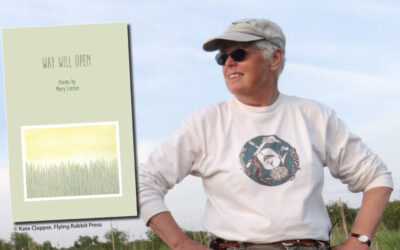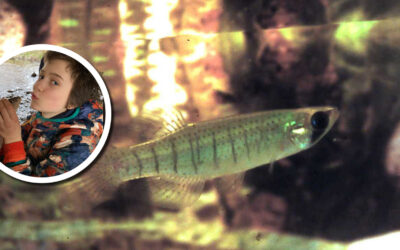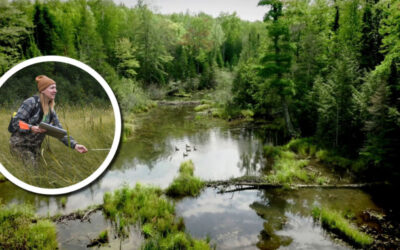Wetland Coffee Break
The Wetland Coffee Break series helps keep our community of wetland lovers connected and learning about wetlands throughout the year, from anywhere! Bring your coffee and learn about wetlands, the plants and animals that call them home, and the many natural benefits they provide to our communities. Sessions are held on Zoom and feature time for audience Q&A.
See below for a list of upcoming presentations and to register. Once you register, you’ll receive an automatic email including the URL link and password you’ll need to access the meeting. We record and post each presentation so you can watch any that you missed live. You’ll find links to these recordings below, and you can also find them on our Facebook page.
We are grateful to all of the presenters for sharing their knowledge and expertise and to everyone interested in learning more about wetlands! If you are interested in giving a Wetland Coffee Break presentation, or if you have a wetland topic you’d like to see covered, please contact Katie.Beilfuss@wisconsinwetlands.org.
We are now able to provide attendance verification to Wetland Coffee Break audience members who attend the live sessions and request this service. We created this mechanism in response to requests from members of the Wetland Coffee Break audience who would like to apply their Wetland Coffee Break learning to their continuing education or certification requirements. Learn more about how to receive attendance verification here.

Register for a Wetland Coffee Break
Carnivorous plants of the Northwoods
Emily Stone, Naturalist & Education Director, Cable Natural History Museum
Friday, March 13, 2026
10:30 am CT
Description
In some low-nutrient wetlands, plants reverse the food chain and become carnivorous to meet their needs. Discover the beauty and the impressive adaptations of these charismatic Northwoods residents with naturalist Emily Stone.
Emily Stone is a naturalist by birth, training, profession, and passion. After earning a Field Naturalist master’s degree from the University of Vermont with a wetland-focused project, Emily became the Naturalist/Education Director at the Cable Natural History Museum in Cable, Wisconsin. Emily writes a weekly “Natural Connections” column published in more than 20 local and regional newspapers. Her third Natural Connections book was published in November 2025.
Common Carex of wet open ground
Aaron Feggestad, Stantec
Friday, March 27, 2026
10:30 am CT
Description
Genus Carex, the true sedges, form a fascinating and diverse group of plants. An evolutionary success story, Carex is the most species-rich genus in Wisconsin with over 150 species. This introductory talk will focus on field identification characteristics of widely ranging Carex species of wet open ground (wet prairie, sedge meadows, fen, marsh). The content will focus on subgenus Carex and will be useful for anyone looking to build upon their knowledge of common species.
Aaron Feggestad has been a practicing wetland professional for the past 20+ years, primarily working in Wisconsin and the Great Lakes Region as a consulting ecologist, volunteer, and educator. Fascinated by the role of Carex in natural area function, and the importance of Carex in the restoration of many types of natural communities, he is working towards a goal of cataloging nearly all the 158 species that occur within the state.
Watch previous presentations
Click “Older Entries” below to see more past presentations, or view our Google Sheet index of past presentations here.
Wetland Coffee Break: Celebrating wetlands through poetry: The art and craft of Mary Linton
Join us for this special Wetland Coffee Break to honor Mary’s memory and celebrate her craft as a poet.
Wetland Coffee Break: All-female salamanders “rule” an ephemeral pond
Gregory T. Burns discusses his multi-year citizen science amphibian-focused research of vernal pools (ephemeral ponds) in east central Wisconsin, including the first definitive discovery of the all-female salamander biotype in southern Wisconsin.
Wetland Coffee Break: Starhead Topminnow: The rare star of the backwaters of the Lower Wisconsin Riverway
Young ichthyologist Madeline Cleveland shares her knowledge of this state endangered species’ natural history, the threats it faces, and conservation efforts being made to preserve it.
Wetland Coffee Break: Dibaginjigaadeg Anishinaabe Ezhitwaad: A tribal climate adaptation menu for indigenous-led adaptation planning
Learn about the Tribal Adaptation Menu which provides a framework to integrate indigenous and traditional knowledge, culture, language, and history into the climate adaptation planning process.
Wetland Coffee Break: Wetland monitoring and protection on the Red Cliff reservation
Take a tour of the wetlands in Red Cliff and learn about efforts to monitor and manage the Tribe’s wetlands.
Wetland Coffee Break: Implications of the Sackett decision for Wisconsin: Early takes from the front lines
Watch the recording of our special one-hour edition of the Wetland Coffee Break series to explore the ecological, legal, and political implications for Wisconsin wetlands of the U.S. Supreme Court’s decision in Sackett vs EPA.






